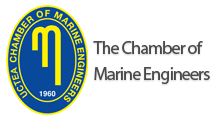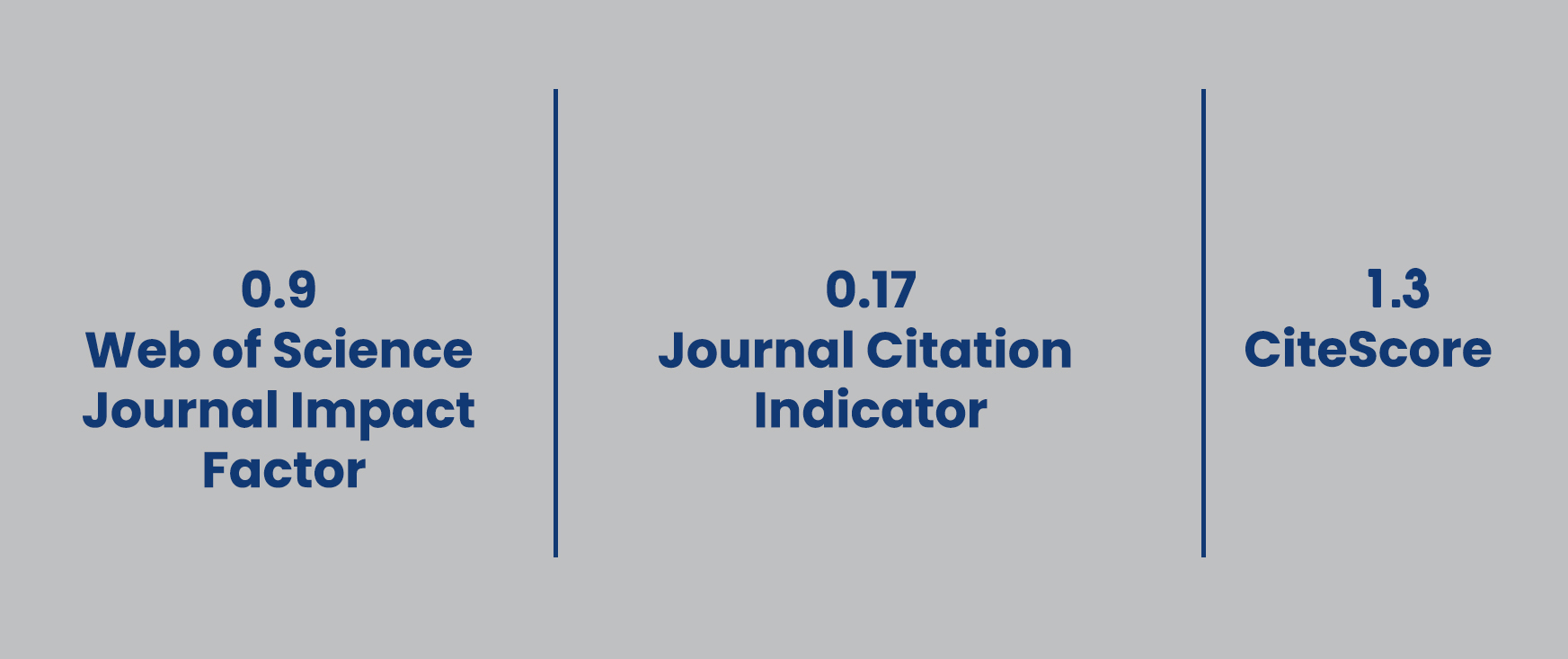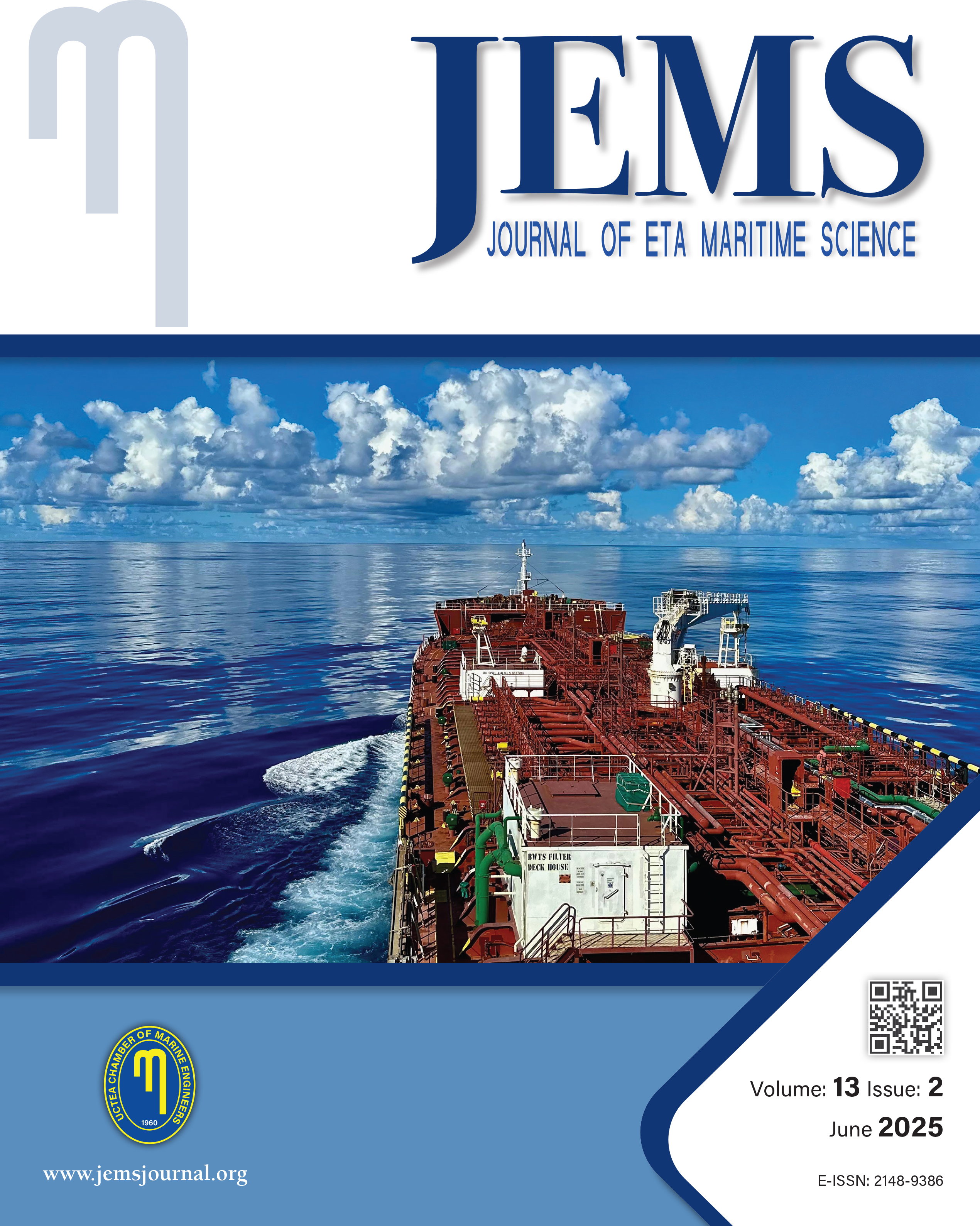

JEMS apply the Creative Commons Attribution NonCommercial 4.0 International Licence to all manuscripts to be published
ABSTRACTING & INDEXING
Volume: 2 Issue: 1 - 2014
| EDITORIAL (ED) | |
| 1. | Editorial Page V |
| ORIGINAL RESEARCH (AR) | |
| 2. | Fuzzy Based Risk Analysis for OffShore Petroleum Platforms Nagihan Türkoğlu, Ayhan Menteş Pages 1 - 10 Deep water drilling operations are expected to increase in the near future. Various types of offshore platforms including fixed and floating platforms are to be built for drilling, production and storage of oil and gas. Many of different platform types (SPAR, TLP, FPSO etc.) will be designed depending on local environmental conditions. The risk analysis of the selected platform will be of importance in terms of operational safety. In this study, a fuzzy-based approach has been suggested for the offshore platform risk analysis. Initially, mobile drilling units, mobile production units and mono-hull structures exposed accidents were investigated extensively. Methods of risk and safety analysis which are used in the marine industry were examined. As a case study, risk analysis for a FPSO turret system was performed. The fuzzy-based approach would be appropriate tool to obtain accurate values of the parameters like failure rates and the frequency of occurrence. |
| FULL TEXT | |
| 3. | Journal of ETA Maritime Science (Volume: 2 Issue: 1, 2014) Pages 1 - 80 Abstract | |
| ORIGINAL RESEARCH (AR) | |
| 4. | Cold Ironing Method; An Application of Marport Terminal Nurullah Hakan Pekşen, Duygu Yıldırım Pekşen, Aykut Ölçer Pages 11 - 30 Maritime transport is the most environmentally friendly type of transport mode. However, air pollution and greenhouse gases from international shipping are increasing because of the growing maritime traffic. These exhaust emissions cause global warming, acid rain and a reduction in air quality which has serious adverse effects on human health. The Regulations for the Prevention of Air Pollution from Ships as Annex VI of MARPOL Convention 73/78 brought an arrangement about limitation of NOX and SOX from exhaust gas for global and emission control area (ECA). Turkey has also ratified Annex VI on 26th February 2013. Turkey has conducted the European Union IPA Twinning Project for the Control of Ship-Sourced Emissions to control emissions. The project supports establishing an ECA in the Sea of Marmara and Turkish Straits, and it is intended to be completed in near future. After establishing ECA in Turkey, all ships have to use fuel oil which contains max 1% m/m sulphur or alternative technology that can reduce sulphur amount 4.0 g SOX/kWh level from main and auxiliary engine. After 2015 this figures will be respectively 0,1 m/m and 0,4 g SOX/kWh. On the other hand, according to the latest revision of the Turkish Regulation on Reduction of Sulphur Rate in Some Types of Fuel Oils, inland vessels and all the vessels at berth, regardless of their flag, are obliged to use marine fuels with sulphur content not more than 0.1% by mass. During the last two decades, different technologies have been tested in ports in order to reduce ship emissions. One of them is known as the cold ironing system which provides ships to use shore-side electricity as onshore electric power supply instead of working auxiliary engines while ships are lifting at berth. In this system, emission from ships during berthing are completely eliminated by using electrical power from national grid as alternative energy source rather than fuel oils which are necessary for combustion process in auxiliary engines to generate electricity. To sum up, this study discusses the cold ironing system as the most economically and environmentally friendly solution on the reduction of ship emissions from the aspect of Turkish port operators while ships are at berth based on a case study for Marport Container Terminal, which is the biggest private container port in the Sea of Marmara. In the case study, by using data of ships calling Marport within 2012, the total emission from ships, environment impact of the emissions on air quality and climate change, and externalities on health costs and others have been discussed. From the financial side, investment costs of cold ironing systems for container ports have been analysed with the investment return period by using the Net Present Value method. In conclusion, the results from the case study present that cold ironing method is the most environmentally solution for ship emissions at the hotelling period and investment return period does not take a long time. |
| 5. | Efficiency Standards of Electric Motors A. Aydın Ercan Pages 31 - 40 In this paper, efficiency standards of the electric motors in European Union and the past and future developments are examined. In addition, other similar standards are mentioned and the electric motor standards which will be legally enforced in European Union in near future are given and these standards are explained with the help of graphic curves of the efficiency tests that are performed in related motors. The importance of complying with these standards for Turkey in manufacturing and using electric motors is emphasized. |
| 6. | Analysis from Statistical Perspective of Deficiencies Originated From the Bridge Causing Ship Accidents Tuba Keçeci, Özcan Arslan Pages 41 - 46 One of the most important issues in maritime industry is to prevent future marine accidents by aiming minimisation of damage to people, property and environment. Investigation of marine accidents and determination of factors affecting safety on board constitute the most important step in achieving this goal. In order to manage safe operation of ships, vessels compliance with international standards is continuously monitored by Flag State and Port State Authorities. In addition to these controls, tanker companies are subject to audit by oil and chemical industries. In this study, Turkish tanker companies SIRE (Ship Inspection Report Programme) and CDI (Chemical Distribution Institute) inspection results are examined, deficiencies and their root causes are investigated. As one of the most frequent errors, bridge related deficiencies are presented statistically and the root causes contributing these deficiencies are discussed. |
| 7. | Evaluation of Health and Safety Conditions for Seafarers: An Example in DEU Maritime Faculty Barış Kuleyin, Burak Köseoğlu, Ali Cemal Töz Pages 47 - 60 It is a well-known fact that around %90 of the world trade is carried out through sea ways in which about 30000 ships are involved. On board ships, one of the basic components of seaborne trade, 1.187.000 seaman (mariners) from diverse nationalities are employed. In other words, over one million seamen devote their efforts to support the welfare of the rest of the world population. This devotion, and thus the crucial importance of mariners, is verified in an expression running as if there were no such devotion from mariners, half of the world population would starve of hunger and the other half of the world starve of getting frozen. Seamanship has a distinctive place in vocations. It has a labor intensive profession which requires utmost attention in terms of safety. Even a little ignorance, neglect or carelessness in this profession is likely to bring about serious accidents and damages most of which might result in deadly events. The purpose of this research is to evaluate the experiences and problems encountered on board ships by the students from DEU Maritime Faculty. The research also aims to provide the prospective cadets with a guideline which could be made use of concerning safety issues. The data collected from the Safety and Wound Information Form will be analyzed through SPSS20 program. |
| 8. | Analysis of Effects of Methods Applied to Increase the Efficiency on Ships for Reducing CO2 Emissions Ali Atıl Talay, Cengiz Deniz, Yalçın Durmuşoğlu Pages 61 - 74 |
| 9. | Decision Support Systems: Usage And Applications In Logistics Services Eyüp Akçetin, Nilüfer Yurtay, Yüksel Yurtay, Emin Öztürk, Alper Kılıç Pages 75 - 80 Competitive advantage in logistics operations is possible by analyzing data to create information and turning that information into decision. Supply chain optimization depends on effective management of chain knowledge. Analyzing data from supply chain and making a decision creates complex operations. Therefore, these operations require benefitting from information technology. In todays global world, businesses use outsourcing for logistics services to focus on their own field, so are seeking to achieve competitive advantage against competitors. Outsourcing requires sharing of various information and data with companies that provide logistical support. Effective strategies are based on well-analyzed the data and information. Best options for right decisions can be created only from good analysis. Thats why companies that supply logistics services achieve competitive advantage using decision support systems (DSS) in industrial competition. In short, DSS has become driving force for every business in todays knowledge-based economy. |










